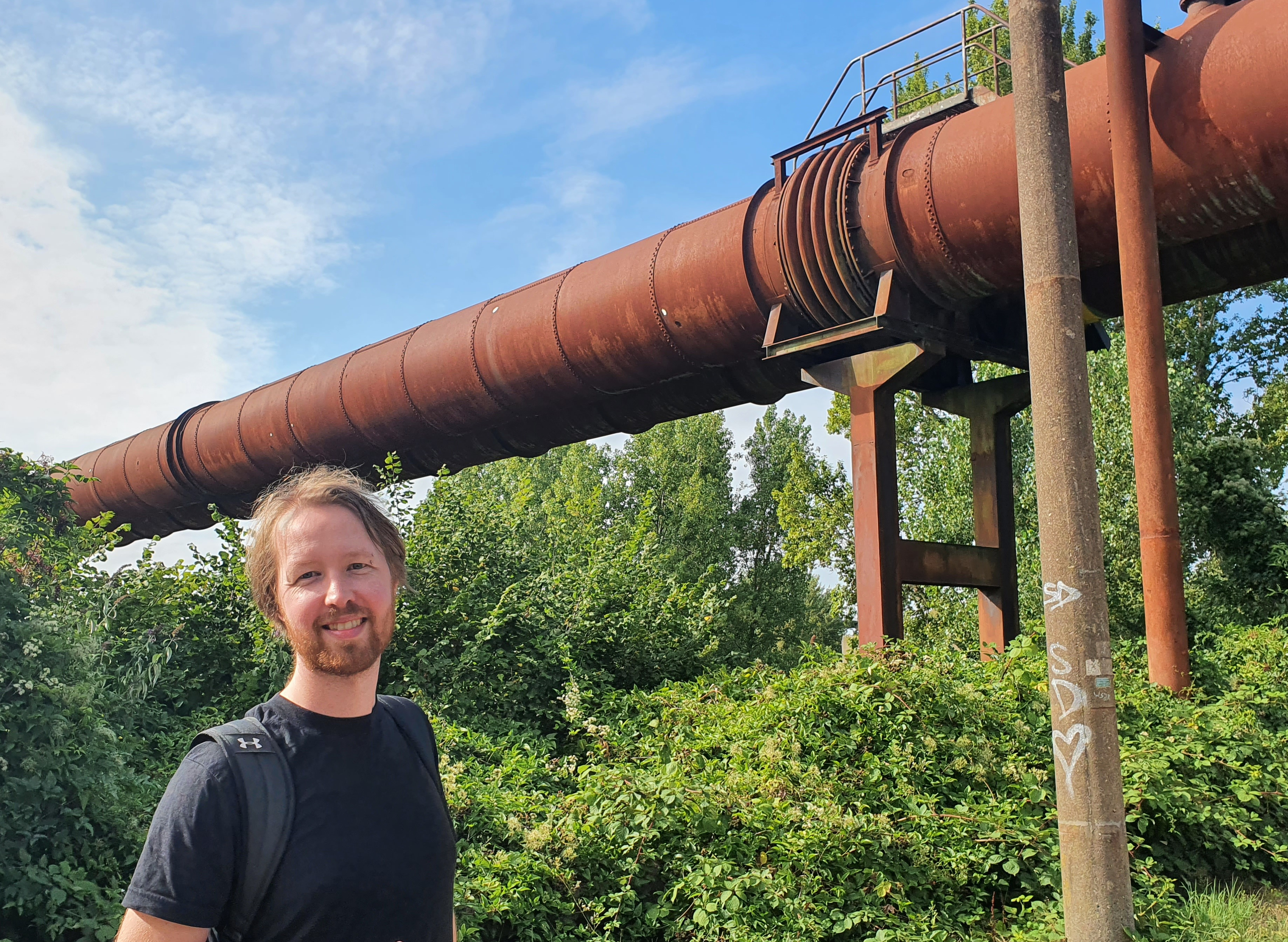
Malte Zamzow is a project manager at KWB and leads the EU Green Deal project AD4GD. The project aims to develop a Europe-wide Green Deal Data Space (GDDS), making various types of data accessible and interoperable. Through pilot projects, such as one addressing water quality and availability in small urban lakes in Berlin, solutions to environmental challenges are being developed, alongside defining the requirements for the GDDS. We spoke to Malte to ask him a few questions about the project.
Malte, what are the most significant outcomes of the AD4GD project?
From KWB's perspective, this project was a crucial starting point for addressing the topic of small water bodies. It led us to focus more intensively on these ecosystems and integrate them into broader urban water management strategies. One of the key highlights was estimating the trophic status (a water quality index) using satellite data. This allows us to monitor the development of lakes without the need for constant water sampling and laboratory analysis. Additionally, we advanced the creation of a "Lake Dashboard" – a platform that consolidates data on Berlin's lakes from various sources. Another success was further developing the Crowdwater app in collaboration with the University of Zurich and Spotteron. This tool enables citizens to record data on water levels, water quality, and the activities at small lakes.
Why are these results significant for Berlin?
Until now, data on small water bodies in Berlin has been decentralised and difficult to access. By bringing this information together, Berlin can now develop targeted strategies for these lakes at both state and district levels. This provides a strong foundation for selecting and integrating effective restoration measures into rainwater management systems.
How can Berlin benefit more broadly from KWB's work?
KWB has been actively involved in applied research in Berlin for years and deeply understands the city's specific challenges. Working with partners such as Berliner Wasserbetriebe and the Berlin Senate, we develop tailored solutions. As a networking hub, we bring together stakeholders from the water sector – for example, through our WasserWerkstatt event series or project-specific workshops. We take a neutral stance, mediating between interests while leveraging our scientific expertise. A significant advantage is that insights from national and European projects feed directly into Berlin. We collect and analyse our data and create added value through visualisation tools. This approach promotes knowledge exchange both locally and internationally.
What makes KWB a great place to work?
KWB is a flexible employer, whether it's about the topics we work on, how we work, or working hours. The collaboration between research groups keeps the work dynamic and provides the sense of contributing to every aspect of the water cycle. The working environment is fantastic and inspiring. Colleagues are passionate about their work, curious about other projects, and always ready to support one another. Everything is very team-oriented and solution-focused.
What hobbies do you have outside of your work?
I play in a band called "Dripping Tap." We occasionally perform in small Berlin clubs, but the real highlight is the regular band practice sessions when we can crank up the amps. I also produce solo music under the name "Ma-z-aM," which is more piano and synth-driven. Beyond that, I love listening to music and attending festivals.
I enjoy spending holidays in the mountains or on my bike during the summer. Long cycling trips lasting one or two weeks are the perfect way for me to disconnect and leave everyday life behind.
Do you have a favourite small water body in Berlin?
I don't have a particular favourite, but one small lake in Berlin-Malchow surprised me. It's not marked on Google Maps or even in the Senate's official water body registry – yet there it is. It reminds us how little we still know about small water bodies – not even Google has mapped them all!


